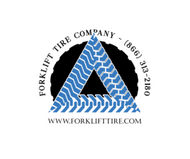17th Aug 2019
Question: How do the polyurethane tires and the cushion tires compare for different applications?
Press on tires usually come in two categories: The polyurethane tires and the rubber tires also known as cushion tires.
Even though these two tire varieties are quite similar in some aspects, they both exhibit some features that make them ideal for specific applications.
In this article, we are going to look at how they compare for indoor, outdoor and warehouse applications.
Indoor Applications
For indoor applications on smooth floors, both the polyurethane tires and cushion tires offer great traction which is ideal for productive operations.
However, the polyurethane tires offer a much lower rolling resistance that is beneficial for conserving the batteries of electric forklifts thereby prolonging use time.
They both do not fair well on floors with debris considering they are used on forklifts with a lower profile. The presence of debris on the floor can also be damaging to the cushion tires which are usually made of soft rubber. If the debris consists of sharp objects they will end up tearing or chunking.
In comparison, polyurethane tires will remain unaffected since they are more resistant to tearing or chunking.
In cases of frequent oil spills or harsh chemical spills, you are better off considering polyurethane tires as opposed to cushion tires since they are chemical resistant.

Outdoor and Rough Terrain Applications
Cushion tires can be used for light outdoor applications on even ground especially when they come with tread designs for improved traction. Since they are usually fitted on forklifts with a low profile this can prove to be a major challenge on bumpy ground.
Polyurethane tires, however, cannot be considered for even light outdoor applications as they are very inefficient in such environments.
Both tires are not ideal for rough terrains compared to pneumatic forklift tires that have shock absorption qualities which minimize fatigue in forklift operators.
Warehouse Application
Even though rubber tires are ideal for most indoor applications for some applications like warehouses and cold storage the polyurethane tires are more preferred.
For instance, in a warehouse where order pickers are frequent, the polyurethane tires are preferred since they offer better traction and a much lower rolling resistance than rubber tires.
They are also ideal for cold storage areas and warehouses which handle fresh vegetables characterized with wet floors. For such applications, the polyurethane tires are usually sipped for better traction and stability on the wet floors.
Some warehouses that handle food and beverages or those that have a high standard of cleanliness usually require the use of non-marking tires as per OSHA laws.
Even though cushion tires that are manufactured without carbon which gives them the dark color usually assume non-marking qualities they still shed compounds that can be harmful when mixed with food.
For this reason, polyurethane tires which are generally non-marking and do not shed any compounds are more preferred for such applications.
Forklift Tire Company is one of the largest suppliers of forklift tires in the USA. We are happy to help you find the right tires for your forklift truck. Visit our online store here for great discounts or email us at sales@forklifttire.com, our customer service team is ready to assist you.






